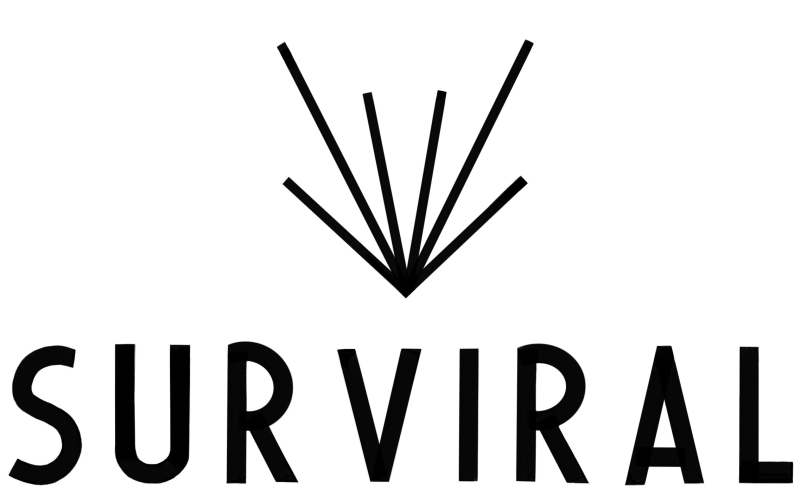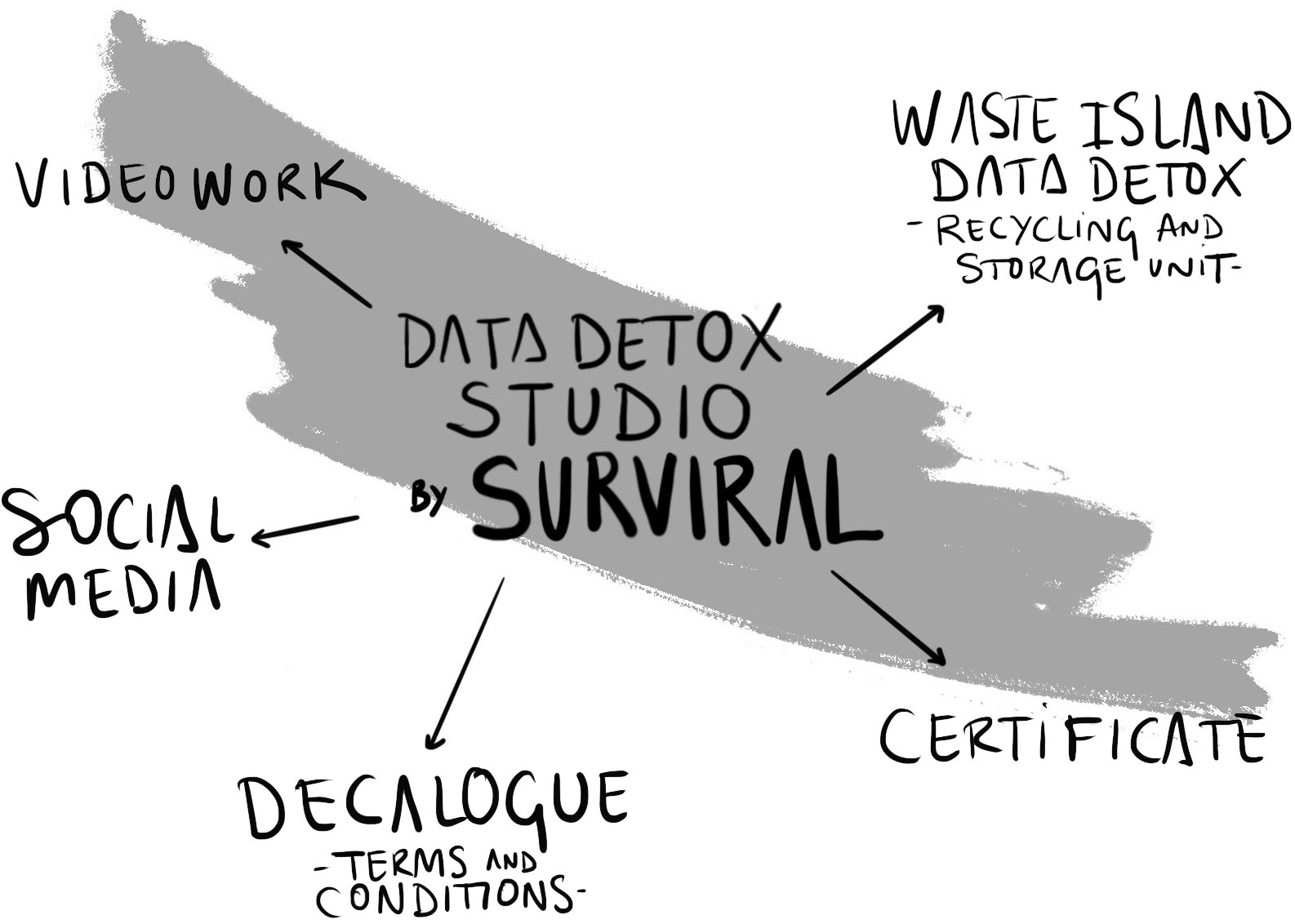
DATA DETOX STUDIO by SURVIRAL
A survivalist venture facing the added threat of Digital Waste in the already rampant environmental pandemic.
The artworkis the symbolic recreation of a recycling entity specialized in digital waste and its virtual certification process. It’s both a representational and real exercise that adds the digital waste to the widespread environmental pandemia. We call for public attention and strive to bring attention to the sizeable amount of waste produced by internet use and to its negative impact on our society and environment. With this work we aim to assist the user-consumer to recycle their digital waste into “clean” energy. The type of recycling we offer consists of turning digital malpractices into knowledge and awareness, resulting in better, less wasteful internet behaviour.
We understand them as clean energy that “compensates” for the noxious use of the net in the same way that companies offset their CO2 output with investments in sustainability initiatives around the world. When SURVIRAL speaks of “compensation” it does so in a symbolic way, not based on quantitative computes like specialized agencies use to calculate real world offsets. We trust that after the viewer-user has experienced DATA DETOX STUDIO they will change their toxic internet use habits. Awareness may have no currency in the real world but is of key value within the representational world of SURVIRAL.
The work DATA DETOX STUDIO by SURVIRAL is made up of five complementary pieces in various media, each with a different strategy of interaction with the audience – all of them hosted on the exhibition´s website and accessible through social media (Fb, IG and Linkdin). These two different channels will allow and incentivise an enriching feedback loop between the user and the two media. While there is great social awareness regarding climate issues, there is surprisingly little mention of the effects of the digitalization of society or any of the other issues relating to it.
DATA DETOX STUDIO aims to rectify this anomaly, shining a light on the damage caused by unlimited, unthinking internet use. ICTs Information and Communication Technologies industry provided 2,018,925 million tons of CO2, which represented 4% of global greenhouse gas (GHG) emissions. With a continuous increase in the number of people with access to the internet -the percentage of which has doubled in the last 10 years-, we are expecting by 2,040 that the polluting emissions due to the digital industry will be reaching 14% or more of global emissions worldwide. In 2018, data traffic alone produced a total of 510 million tons of CO2. We must be aware that each email sent, each video displayed, each web search or each file stored in a cloud requires the use of myriad servers with an ever increasing demand for energy that generates polluting emissions. Raising this issue is especially relevant in the New Normality following the Covid-19 crisis. Since isolation measures were introduced there has been a massive increase in the use of the digital medium. An example of this is Zoom, whose number of users has increased by 3,000% between December 2,019 and April 2,020. 90% of data traffic is carried out on the deep web, the space beyond what we see on our screens, and which is overflowing with data waste. The web is loaded with both used and unnecessary data- dead websites, unused social media accounts etc etc. In a moment in full boom for data mining with economic, political and social purposes -of which the consumer is a participant- an excess of digital waste is generated. A large amount of garbage with a relevance and scope difficult to quantify. Unlocking the magnitude of waste existing in the web and inducing changes in the user’s digital consumption habits would contribute to a great reduction of greenhouse gas emissions and the toxic use of the internet.


